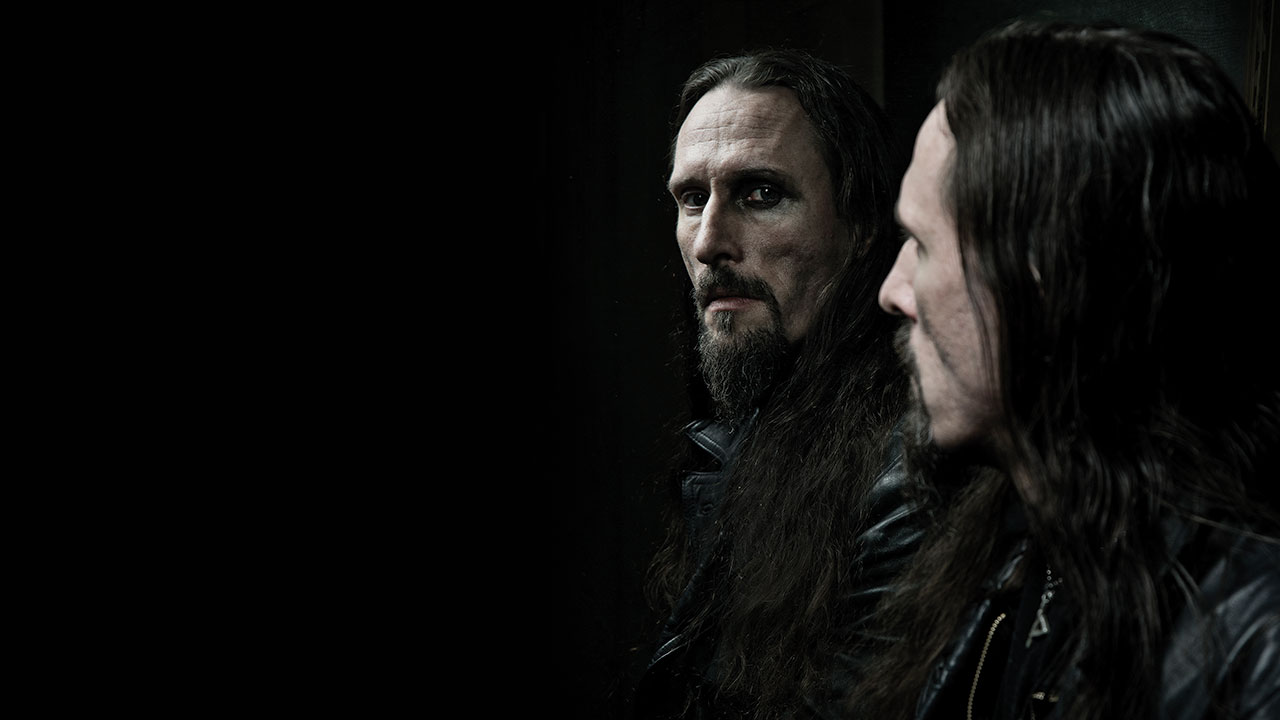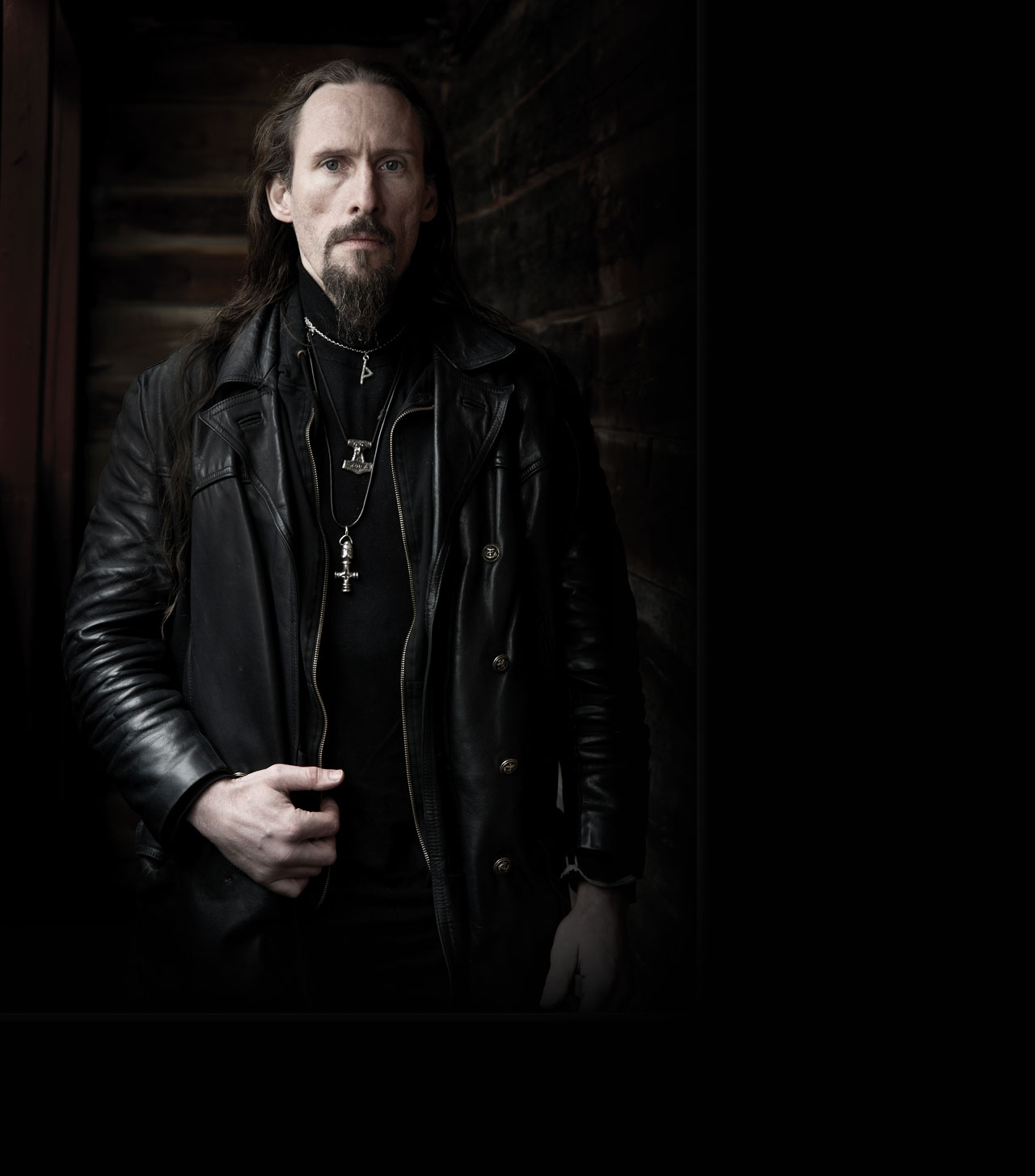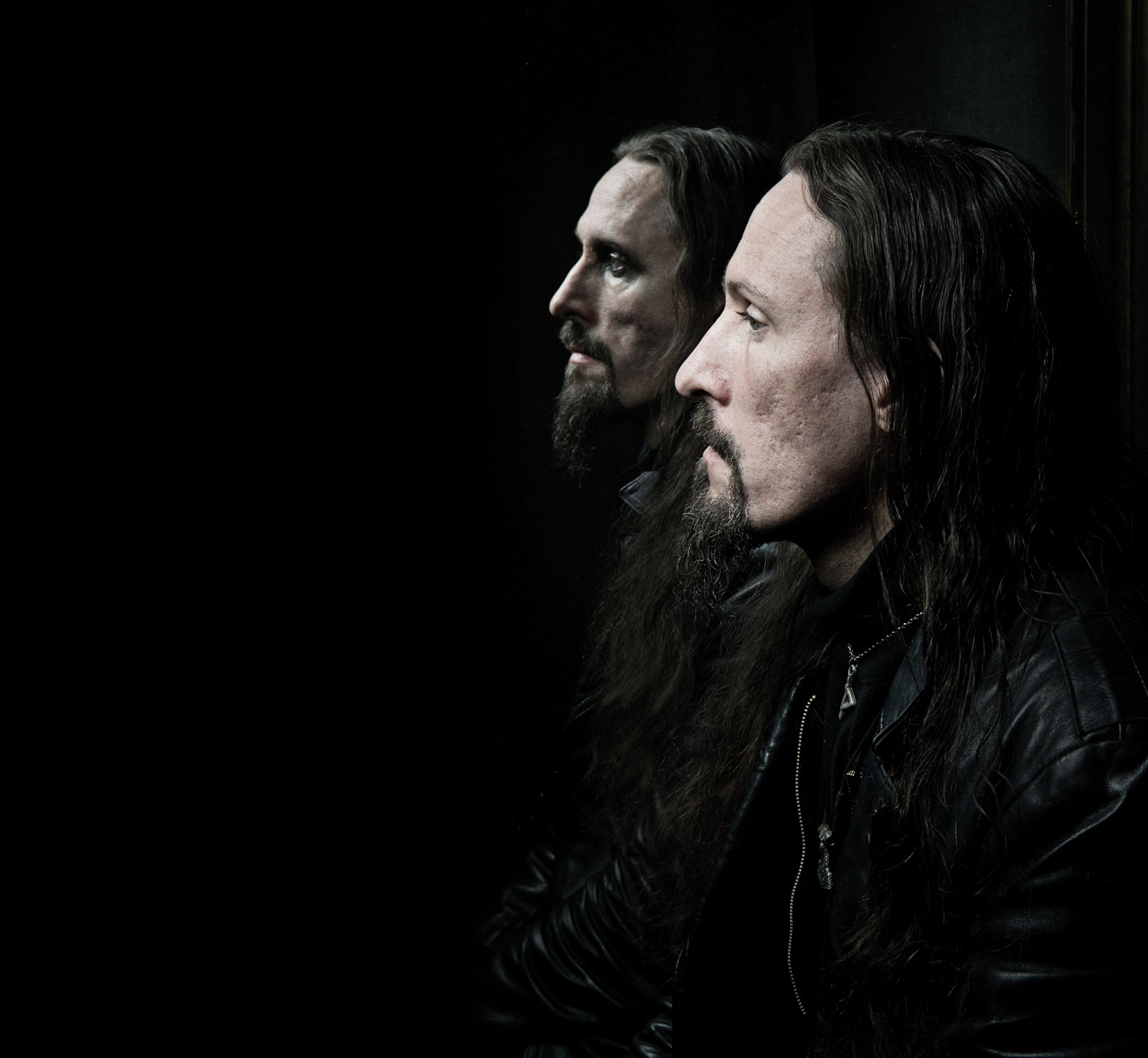Gaahl: The evolution of a black metal icon
by https://www.facebook.com/metalhammer/He made a career helping to define black metal across two decades with the likes of Trelldom and Gorgoroth. So what made him leave the subgenre behind for his new venture?

Bergen’s Bryggen district is prone to fire. The wooden buildings that overlook the docks burned down in 1702 and suffered further damage over the years, including a partial incineration in 1955. The cycle of destruction and rebirth can unearth treasures, however.
During the last reconstruction, a set of runic inscriptions dating up to the medieval age was discovered, arguably the most important such find in the 20th century and a continuity uncovered by upheaval.
Today, Bryggen is a tourist area; 300 metres along the docks, the imposing Bergenhus fortress overlooks various cruise and cargo ships, while restaurants and souvenir shops are set into mustard, white and red period constructions that, like our own Tudor buildings, charmingly can’t muster a right angle between them.
It’s not an area you’d expect to find a hub of the black metal scene. Walk up the wooden steps beside Bryggen 37 and on the second floor you’ll find the Nidhogg tattoo studio, co-owned by Jannicke-Wiese Hansen, the artist whose logo designs and artwork for Burzum’s and Satyricon’s first releases – in direct contrast to her character – laid down the groundwork for the movement’s cheerless, foreboding aesthetic. Directly below is Galleri Fjalar.
Run by former Trelldom (on hold), Gorgoroth and God Seed vocalist Kristian ‘Gaahl’ Espedal, one of the most iconic figures to have emerged from the extreme metal underground, it exists to showcase his own paintings, and those of other artists he deems worthy.
Ranged around its wood-panelled space is currently his own installation: a charcoal drawing of a young naked man, reproduced with multi-coloured backgrounds. Occupying his own space – as he does in any environment – is Gaahl himself, sitting quietly with his long-term partner Robin standing nearby.
“I’ve been painting even before I was making music,” he says of his recently revealed discipline. “I’m self-taught, and I’m a child when it comes to art. If I knew why I did it, I wouldn’t do it.”
If you’ve seen Gaahl onstage, with those piercingly expressive blue eyes staring out from behind streaks of corpsepaint, or witnessed that scene in Metal: A Headbanger’s Journey (“What are the primary ideas that fuel Gorgoroth’s music?”
A pause that could swallow a civilisation. “Satan.”), you’ll be aware of his otherworldly level of presence. In person, that presence is still there, as if he’s observing from some vantage point unattainable by the rest of us, but he’s warmer and more accommodating than you might expect.
His dry sense of humour is an engaging mediator for an individual who, despite the fascination he attracts – fuelled by incarcerations, sexual orientation, court battles with Gorgoroth founder Infernus, accusations of religious offence involving sheep heads and naked crucified models, and all-round enigmatic charisma – remains uncomfortable with the limelight.
“There have been a couple of strange reactions when people have come into the gallery,” he says of the metal-loving portion of his clientele. “Some people come to see if I’m there. Some have come in not knowing that this is run by me. So there have been a few quivering legs. It’s something I never get used to. It is strange and remains strange.”
That discomfort has often extended to his own musical vehicles, and a willingness to let them fall apart and start afresh as soon as he feels the creative essence becoming stale. After he and Gorgoroth bassist King lost their legal fight for the band name, Gaahl claimed that was always the point, to let his association with it die.
After the protracted birth of the 2012 God Seed album, I Begin – his final project with King – he seemed disillusioned with the whole process of making music, and his relationship with the metal scene itself, breaking up that band before another album could be made.
“I felt that was going to be the last album in the extreme metal mould,” he recalls. “It had taken certain turns away from that, but I felt that I’d overfed myself with death energy.”
‘Energy’ is a word you’ll often hear from Gaahl. Not in any PMA, get-up-and-go sense, obviously, but as fluid forces beyond oneself to be negotiated with, channelled, invited in. Energy is also always being transferred.
When God Seed – or more crucially, Gaahl’s working relationship with King – dissolved, Gaahls Wyrd was already taking shape, the new band’s first performance at Bergen’s Blekkmetal festival taking place only three months after God Seed’s last.
Playing songs from across Gaahl’s musical history, it allowed him to tap into his past on his own terms, and to give him the space to figure out where he wanted to go next.
“It was more like setting a way of thinking,” Gaahl explains. “I didn’t know at the time if Gaahls Wyrd would become a band that would record. I had to wait for it to mature to make sure it would be the correct line-up and understand how the creative process would work.
So it was small steps, but the band itself gets along. There is a really light energy between us. We share the joy, and I think you can hear that in the music as well, that we actually enjoy playing. I think there were too many war songs in the old days.”

If your impressions of Gaahls Wyrd have been drawn from the retrospective yet utterly enthralling live shows, the band’s debut album, GastiR - Ghosts Invited, will demand a few mental readjustments. For a start, it’s not black metal. There’s not a single hi-tremolo riff, not one classic Gaahl shriek.
But the vocal range that made itself apparent on I Begin has expanded now into a mind-boggling array of different facets, from brooding rasp through to commanding chant and feminine whisper – and that’s just the opening track, Ek Erilar.
Elsewhere, you’ll hear bellicose, bug-eyed incantations, deep portentous baritones, flinty, seer-like reveries, and on the mesmerising, transformational journey that is Carving The Voices, imperious… crooning?
“I didn’t know what crooning was until Iver [Sandøy, producer and Enslaved drummer] explained it to me,” Gaahl laughs. “He played me some later works by Scott Walker afterwards as a reference point.”
The late-60s pop idol turned avant-garde hero might not have been an inspiration for GastiR - Ghosts Invited, but a host of other artists were, David Bowie, Judas Priest, Thin Lizzy and various thrash pioneers amongst them, all contributing to the album’s erratic, multi-tonal if thoroughly immersive whole. It’s not in Gaahl’s nature to merely take in influences unfiltered.
Instead, they’re elements of the album’s broader theme. GastiR - Ghosts Invited is in large part about memories, about giving them voice and creating dialogues between the traces left by past experience – a weaving of residues into a map of oneself. Where do these memories come from?
“It’s me, me, me, ha ha ha! And a couple of other mes,” Gaahl laughs. “But also small homages to characters. Both non-existent and people that have existed, and to entities that are not necessarily facts but just ideas. It’s a lot of homages and tiny drops, just personal associations. The topic is ghosts invited, but ghosts are so much more than just ghosts. Your childhood is a ghost. Your great grandparents are ghosts.
“They’re energies,” he continues. “I’m trying to make sense of them or paint a complete picture in the different songs, and therefore I act out these different characters, so I have to act out different energies. It could be anything, from the young and old communicating in the same song, singing the same words.
But the way one sings a single word or a lyric is part of the whole process. If people catch the energy, I don’t know, but for me I might be some sort of vessel, although it’s still a dialogue with myself, to paint a complete picture for myself.”
There’s one lyric on Carving The Voices that seems particularly telling: ‘Carving the voices into the speech / Carving the voices into the mind / Carving the voices into the self.’ It seems to chart a journey down into the separate strata of the psyche, a notion Gaahl is willing to concede.
“That’s one of the topics I’ve always focused on, and I think the reason why I’m so focused on the subconscious is because that’s where you are most aware. It has to do with honesty or purity, it’s this untainted form of energy.
"Even though it sounds a bit insane, the awareness of the subconscious is the best gateway for me to get a full understanding. It’s the whispers within yourself, this is the core of the self. So I think that’s the level I’ve always been working with, particularly with Trelldom. On this album, it’s told in a very different way, even though it’s the same process.”

For Gaahl, that process has never been an easy one. For I Begin, the vocals took the best part of a year to record, while Gorgoroth’s 2003 album, Twilight Of The Idols, had its own sense of difficult circumstances – at the time it was made, Gaahl was in prison for assault, self-defence as he’s always put it.
“I had leave to do the vocals,” says Gaahl, “but I didn’t do a single thing on that leave. It took a long time before I managed to solve it, but I had to wait until I’d finished my sentence, because when I tried to do it during the leave, nothing approached. There was nothing that I wanted to be told, basically.”
He served further prison time in 2004, again due to assault. Did the time in prison alter his perspective on the world around him?
“I probably got more patient with humanity,” he admits. “Socialising is not a natural state for me, so I think I got better at being patient with people, or being better at socialising in general, rather than just being grumpy.”
That’s not a normal reaction you’d expect to get from a prison term.
“No. We work in mysterious ways, he he he!”
If GastiR - Ghosts Invited was a more expeditious undertaking, that doesn’t mean that finding the right resonances, and being able to open yourself to those voices came without a large element of soul-searching.
“But when I hear a voice in my head,” he explains, “I know I can do it, it’s just that I might have to sit down and figure out how to manage to open up so that I actually can execute it. One needs to talk to the microphone a bit before to accept the presences.”
GastiR - Ghosts Invited not only marks another evolutionary step for Gaahl, it’s his most personal work to date – a multi-layered journey into self-awareness. It’s not an easy undertaking, but for him, what have been the benefits from this level of both introspection and opening up?
“Growth,” is the reply. “And change. I don’t feel the need to understand things, but for me it’s more important to move. Move, change and exist, within the voice of existence.”
Does he feel, with this album, that he’s created a map to take him further?
“A map of parts of me, maybe. There’s a lot more to come. So yes, it’s a very incomplete map, but I’ve covered a region, ha ha ha!”
Gaahl's Wyrd:
GastiR - Ghosts Invited
The black metal icon takes a turn for the unexpected with the new album from Gaahls Wyrd. View Deal